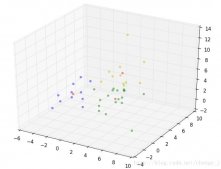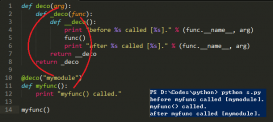这篇文章主要介绍了如何通过python实现人脸识别验证,文中通过示例代码介绍的非常详细,对大家的学习或者工作具有一定的参考学习价值,需要的朋友可以参考下
直接上代码,此案例是根据https://github.com/caibojian/face_login修改的,识别率不怎么好,有时挡了半个脸还是成功的
|
1
2
3
4
5
6
7
8
9
10
11
12
13
14
15
16
17
18
19
20
21
22
23
24
25
26
27
28
29
30
31
32
33
34
35
36
37
38
39
40
41
42
43
44
45
46
47
48
49
50
51
52
53
54
55
56
57
58
59
60
61
62
63
64
65
66
67
68
69
70
71
72
73
74
75
76
77
78
79
80
81
82
83
84
85
86
87
88
89
90
91
92
93
94
95
96
97
98
99
100
101
102
103
104
105
106
107
108
109
110
111
112
113
114
115
116
117
118
119
120
121
122
123
124
125
126
127
128
129
130
131
132
133
134
135
136
137
138
139
140
141
142
143
144
145
146
147
148
149
150
151
152
153
154
155
156
157
158
159
160
161
162
163
164
165
166
167
168
169
170
171
172
173
174
175
176
177
178
179
180
181
182
183
184
185
|
# -*- coding: utf-8 -*-# __author__="maple"""" ┏┓ ┏┓ ┏┛┻━━━┛┻┓ ┃ ☃ ┃ ┃ ┳┛ ┗┳ ┃ ┃ ┻ ┃ ┗━┓ ┏━┛ ┃ ┗━━━┓ ┃ 神兽保佑 ┣┓ ┃ 永无BUG! ┏┛ ┗┓┓┏━┳┓┏┛ ┃┫┫ ┃┫┫ ┗┻┛ ┗┻┛"""import base64import cv2import timefrom io import BytesIOfrom tensorflow import kerasfrom PIL import Imagefrom pymongo import MongoClientimport tensorflow as tfimport face_recognitionimport numpy as np#mongodb连接conn = MongoClient('mongodb://root:123@localhost:27017/')db = conn.myface #连接mydb数据库,没有则自动创建user_face = db.user_face #使用test_set集合,没有则自动创建face_images = db.face_imageslables = []datas = []INPUT_NODE = 128LATER1_NODE = 200OUTPUT_NODE = 0TRAIN_DATA_SIZE = 0TEST_DATA_SIZE = 0def generateds(): get_out_put_node() train_x, train_y, test_x, test_y = np.array(datas),np.array(lables),np.array(datas),np.array(lables) return train_x, train_y, test_x, test_ydef get_out_put_node(): for item in face_images.find(): lables.append(item['user_id']) datas.append(item['face_encoding']) OUTPUT_NODE = len(set(lables)) TRAIN_DATA_SIZE = len(lables) TEST_DATA_SIZE = len(lables) return OUTPUT_NODE, TRAIN_DATA_SIZE, TEST_DATA_SIZE# 验证脸部信息def predict_image(image): model = tf.keras.models.load_model('face_model.h5',compile=False) face_encode = face_recognition.face_encodings(image) result = [] for j in range(len(face_encode)): predictions1 = model.predict(np.array(face_encode[j]).reshape(1, 128)) print(predictions1) if np.max(predictions1[0]) > 0.90: print(np.argmax(predictions1[0]).dtype) pred_user = user_face.find_one({'id': int(np.argmax(predictions1[0]))}) print('第%d张脸是%s' % (j+1, pred_user['user_name'])) result.append(pred_user['user_name']) return result# 保存脸部信息def save_face(pic_path,uid): image = face_recognition.load_image_file(pic_path) face_encode = face_recognition.face_encodings(image) print(face_encode[0].shape) if(len(face_encode) == 1): face_image = { 'user_id': uid, 'face_encoding':face_encode[0].tolist() } face_images.insert_one(face_image)# 训练脸部信息def train_face(): train_x, train_y, test_x, test_y = generateds() dataset = tf.data.Dataset.from_tensor_slices((train_x, train_y)) dataset = dataset.batch(32) dataset = dataset.repeat() OUTPUT_NODE, TRAIN_DATA_SIZE, TEST_DATA_SIZE = get_out_put_node() model = keras.Sequential([ keras.layers.Dense(128, activation=tf.nn.relu), keras.layers.Dense(128, activation=tf.nn.relu), keras.layers.Dense(OUTPUT_NODE, activation=tf.nn.softmax) ]) model.compile(optimizer=tf.compat.v1.train.AdamOptimizer(), loss='sparse_categorical_crossentropy', metrics=['accuracy']) steps_per_epoch = 30 if steps_per_epoch > len(train_x): steps_per_epoch = len(train_x) model.fit(dataset, epochs=10, steps_per_epoch=steps_per_epoch) model.save('face_model.h5')def register_face(user): if user_face.find({"user_name": user}).count() > 0: print("用户已存在") return video_capture=cv2.VideoCapture(0) # 在MongoDB中使用sort()方法对数据进行排序,sort()方法可以通过参数指定排序的字段,并使用 1 和 -1 来指定排序的方式,其中 1 为升序,-1为降序。 finds = user_face.find().sort([("id", -1)]).limit(1) uid = 0 if finds.count() > 0: uid = finds[0]['id'] + 1 print(uid) user_info = { 'id': uid, 'user_name': user, 'create_time': time.time(), 'update_time': time.time() } user_face.insert_one(user_info) while 1: # 获取一帧视频 ret, frame = video_capture.read() # 窗口显示 cv2.imshow('Video',frame) # 调整角度后连续拍5张图片 if cv2.waitKey(1) & 0xFF == ord('q'): for i in range(1,6): cv2.imwrite('Myface{}.jpg'.format(i), frame) with open('Myface{}.jpg'.format(i),"rb")as f: img=f.read() img_data = BytesIO(img) im = Image.open(img_data) im = im.convert('RGB') imgArray = np.array(im) faces = face_recognition.face_locations(imgArray) save_face('Myface{}.jpg'.format(i),uid) break train_face() video_capture.release() cv2.destroyAllWindows()def rec_face(): video_capture = cv2.VideoCapture(0) while 1: # 获取一帧视频 ret, frame = video_capture.read() # 窗口显示 cv2.imshow('Video',frame) # 验证人脸的5照片 if cv2.waitKey(1) & 0xFF == ord('q'): for i in range(1,6): cv2.imwrite('recface{}.jpg'.format(i), frame) break res = [] for i in range(1, 6): with open('recface{}.jpg'.format(i),"rb")as f: img=f.read() img_data = BytesIO(img) im = Image.open(img_data) im = im.convert('RGB') imgArray = np.array(im) predict = predict_image(imgArray) if predict: res.extend(predict) b = set(res) # {2, 3} if len(b) == 1 and len(res) >= 3: print(" 验证成功") else: print(" 验证失败")if __name__ == '__main__': register_face("maple") rec_face() |
以上就是本文的全部内容,希望对大家的学习有所帮助,也希望大家多多支持服务器之家。
原文链接:https://www.cnblogs.com/angelyan/p/12113773.html















